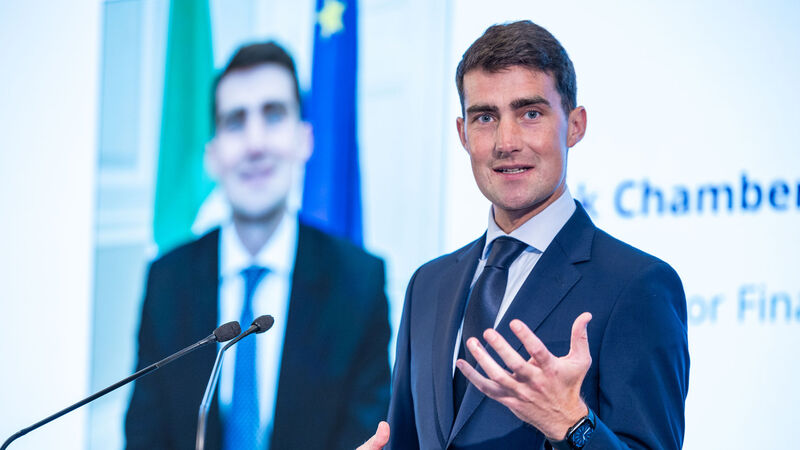Tax take jumps 13% this year with August seeing another surge in corporation tax receipts

Minister for Finance Jack Chambers. Total Government expenditure during the first eight months of the year totalled €69.1bn. Pic: Orla Murray
Corporation tax receipts in August doubled compared to last year driving up Government revenue by over 40% to €7.4bn during the month, the latest Exchequer results shows, as preparations for the Budget next month continue.
Last month, corporation tax receipts alone increased by €1.9bn to €3.7bn - a 108.7% increase. The Department of Finance said the bulk of this monthly growth likely reflects a “timing factor, with the increase offsetting a decline earlier in the year”.











